This Intervention Centre Helps Children with Hearing Impairments to Speak & Join Regular Schools
This school in Chennai is helping children with hearing impairments develop language skills so they can join the mainstream education system. And it is completely free.
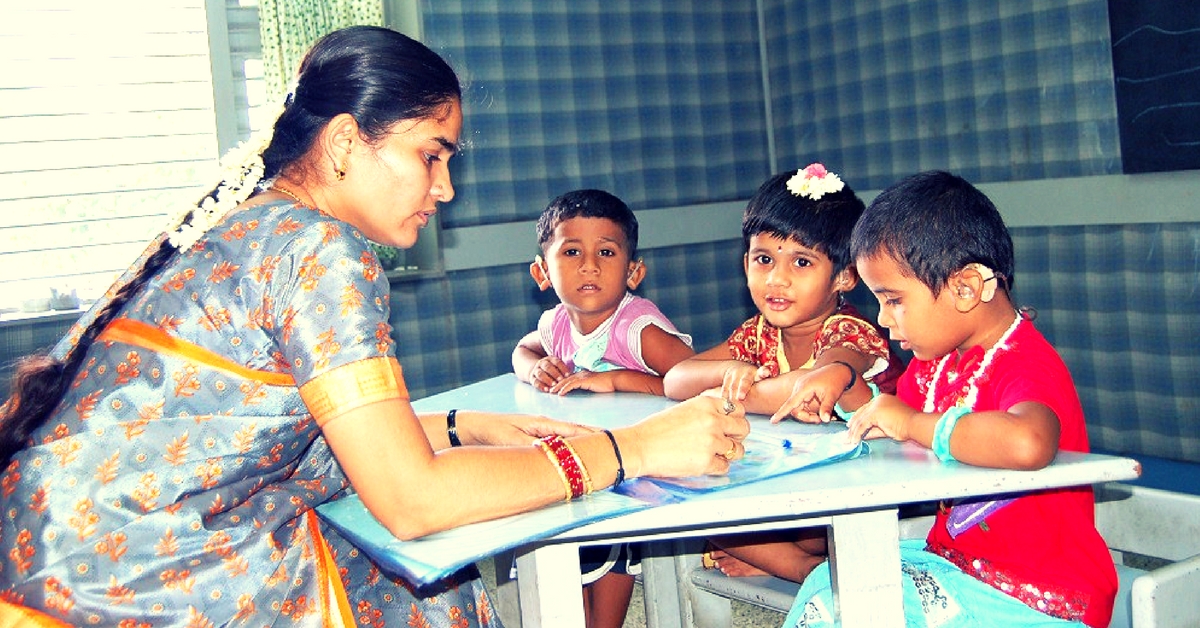
This school in Chennai is helping children with hearing impairments develop language skills so they can join the mainstream education system. And it is completely free.
“Every child here is special for us…and their stories will always remain close to our hearts,” says Dr. Valli Annamalai, the principal of Balavidyalaya School – an amazing early intervention centre for children with hearing impairments.
Located in Chennai, this school is open only to children less than three years of age. The goal is to help them develop verbal language skills by making the best use of residual hearing, which is the ability to hear some sounds in spite of hearing loss.
As a result, the hearing loss does not inhibit their speaking ability; they are taught to speak using hearing aids or cochlear implants.
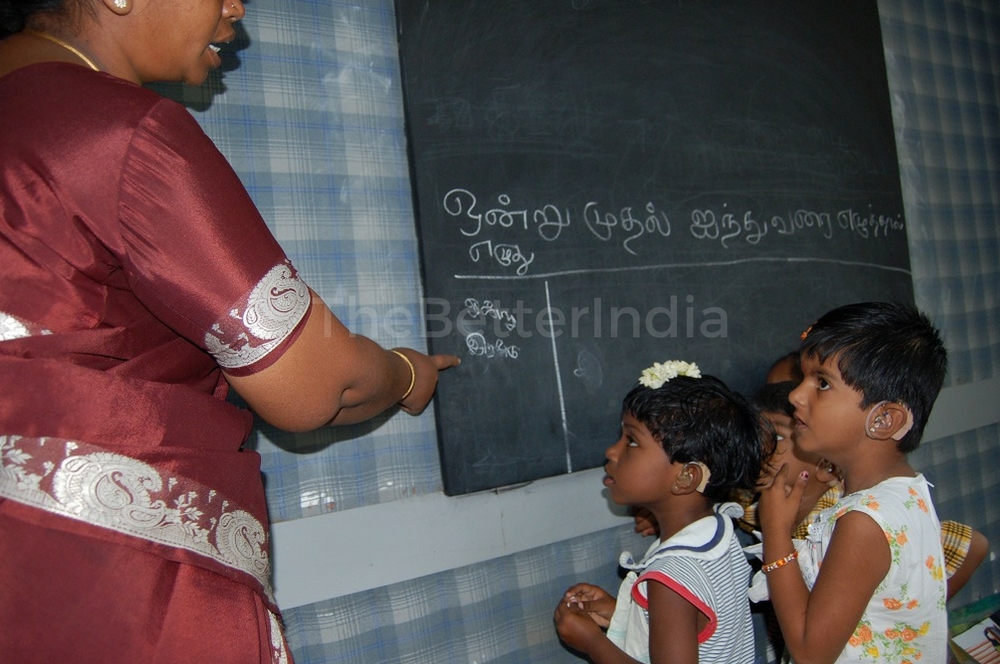
“Deaf children are usually not able to talk because they don’t hear. We hear language every day from the time we are born so we pick it up and start talking. Children who cannot hear are never introduced to any language. But we work with the fact that all deaf children have some amount of residual hearing. If the children start using hearing aids from an early age, the residual hearing is preserved and children pick up the language. As they grow older, the residual hearing atrophies. So hearing aids are not of much use for children who start using them late,” says Valli.
The school follows a special curriculum that focusses on preparing each child to join the mainstream education system at the earliest possible age. These children enter regular schools when they acquire the necessary skills needed for competing with others of their age.
Teaching method:
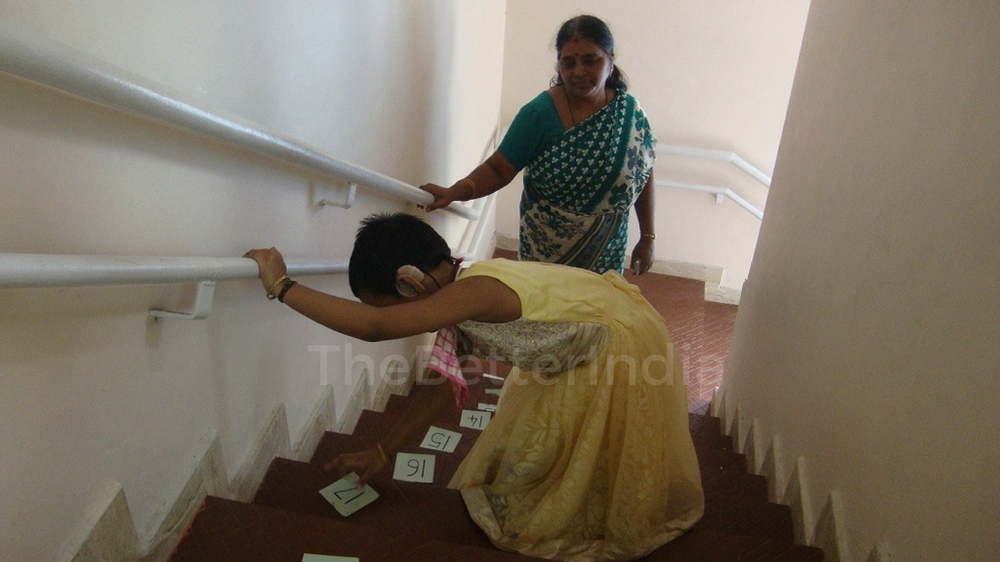
Balavidyalaya has developed a unique teaching methodology called DHVANI, which stands for Development of Hearing, Voice and Natural Integration. DHVANI works towards the holistic development of a child’s personality at an early age. The school does not use any formal textbooks and all learning is activity based. There are three important requirements:
1. Children have to wear the hearing aids throughout their waking hours.
2. Meaningful language, in grammatically correct sentences, should surround the children at all times.
3. Teachers and parents should make eye contact with children while talking to them.
The school works on the reading, writing and math skills of children as well and the medium of instruction is English or Tamil. The curriculum has two parts:
• Early intervention programme:
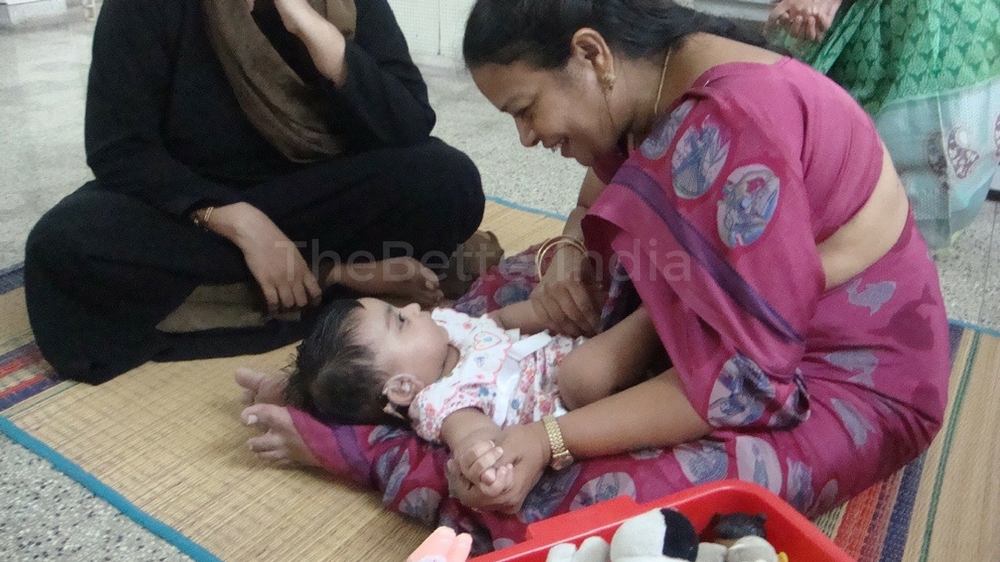
Children younger than three join this programme. The student-teacher ratio here is 1:1 and a parent or guardian accompanies the child to school. The centre believes that parents are the first educators in a child’s life. The teachers show them ways to use everyday situations and activities at home to develop language and speech skills in the child. For example, parents can talk to the child while feeding. Or they can hold a colourful object to attract the child’s attention and talk about it. The same process can be repeated with objects like toothbrush, food, books, etc., at school. It is a repetitive process and the child starts understanding the language after some time. Children in this programme come to school for only an hour, from 9-10 in the morning.
• Pre-school:
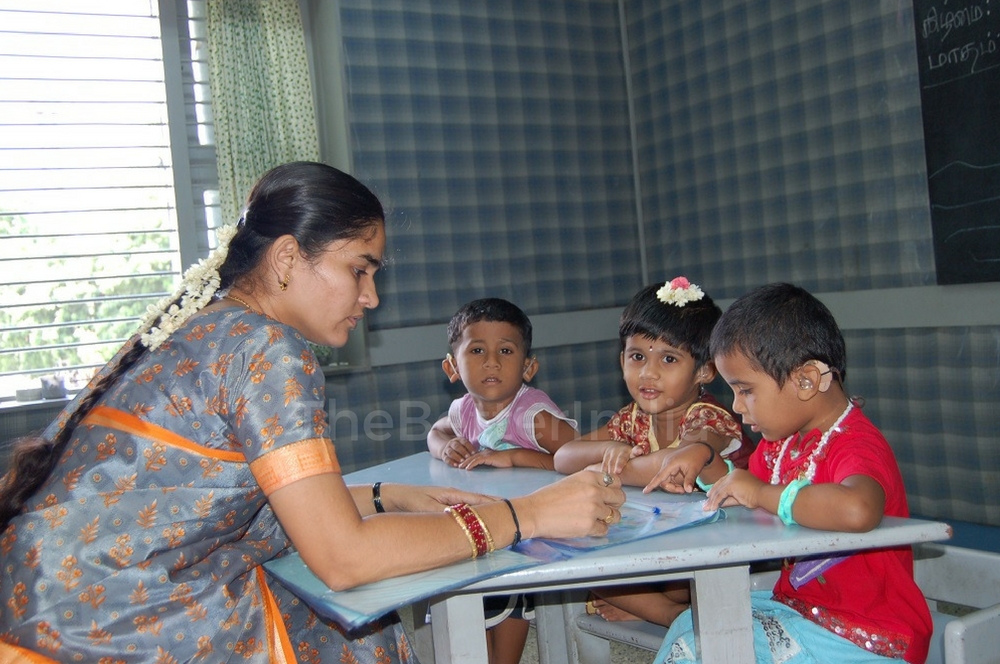
After completing the early intervention programme, children move to the pre-school programme and start attending school from 10:30 am to 3:00 pm. Here, they further develop their auditory, receptive language and expressive language skills, aside from working on number concepts, reading and writing. Slowly, the students learn to speak, to lip read, and to make out words with the help of their hearing aids.
Throughout the school year, parents continue to be equal partners in the programme. The Centre conducts regular workshops to help them so they can convert everyday situations at home into language situations.
“If both parents are working, then we request one of them to take a long leave and work with the child. If that is not possible, then the grandparents or aunts come and live with the children,” says Valli.
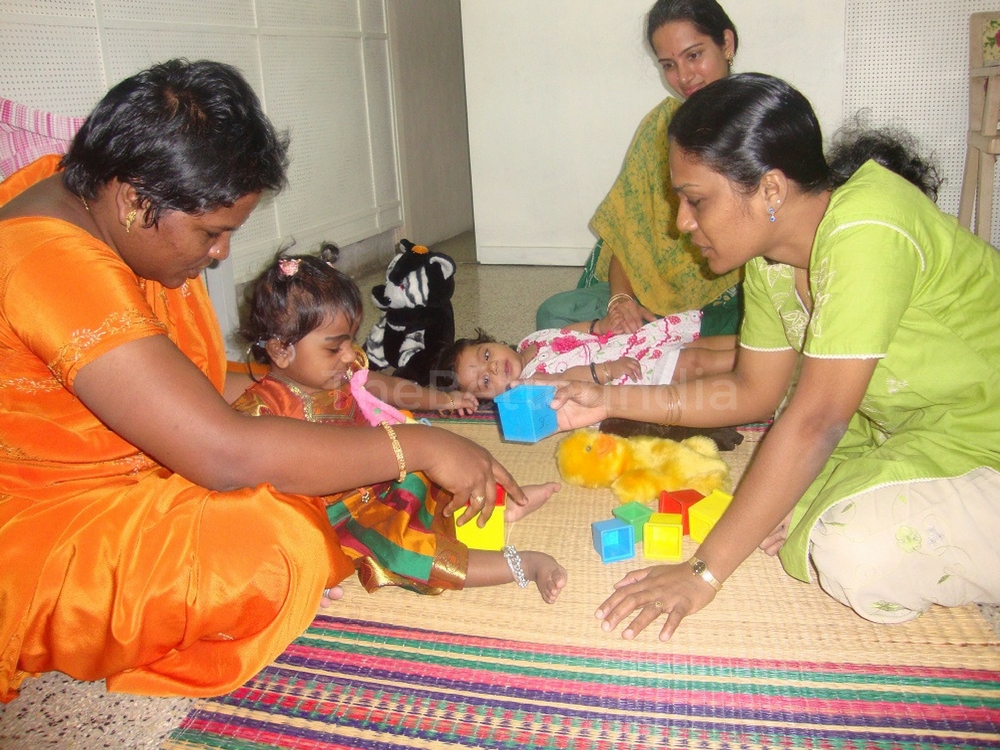
The school does not conduct exams and each child has the space to grow at his/her own speed. The course has 12 levels of about six months each, and the child keeps crossing one level after another when he/she is ready. By the time they are five years old, children develop the required language skills and are ready to join regular schools. Over 1,200 children from Balavidyalaya have joined mainstream schools till now – many have entered colleges and some have started working too. The school keeps track of its alumni, many of whom donate their first salary to the school.
Dr. Saraswathi Narayanaswamy started Balavidyalaya in 1969. “The All India Institute of Speech and Hearing in Mysore was identifying children at that time. But admissions were open only for children who were five or older. She wanted to help children from an early age so she started this school with a friend on an experimental basis. They started with five children and soon realised that the model was working. Eventually, they formed a trust to help the school develop,” says Valli.
The centre is recognised by the Government of Tamil Nadu and is registered under the Persons with Disabilities Act 1995. It functions under the Department of Welfare of the Differently Abled. It has also received a grant from the Central Government, which helps with about 40% of the school expenses. The rest of the funds come from donations. Currently, the school has 89 children and 18 teachers. Three of the teachers offer their services on an honorary basis, including Valli.
Balavidyalaya also has a well-equipped diagnostic centre where children as young as six days are diagnosed.
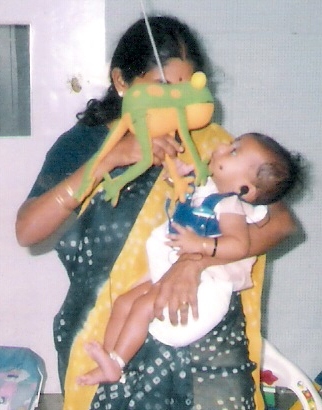
Other than this, there is an Institute of Teacher Training that offers a one-year diploma in Teaching Young Hearing Impaired (DTYHI). The Rehabilitation Council of India (RCI) and the Government of Tamil Nadu recognise the diploma course.
Before becoming the principal here, Valli was a homemaker with a BSc degree. Her mother knew about Balavidyalaya and suggested she should volunteer there. She started by going for an hour each day, which grew to half a day and then full time. During this period, Valli completed her B.Ed. and M.Ed. courses and then finished her Ph.D. as well.
“When these children utter their first words, go out and join mainstream schools, progress, and succeed in life – it gives us immense happiness. And that is what we are working towards,” sums up the 61-year-old.
Hear a Balavidyalaya alumnus, who is now working with Microsoft, talk about her journey:
You can contact the school by writing to [email protected]
Like this story? Or have something to share? Write to us: [email protected], or connect with us on Facebook and Twitter (@thebetterindia).
If you found our stories insightful, informative, or even just enjoyable, we invite you to consider making a voluntary payment to support the work we do at The Better India. Your contribution helps us continue producing quality content that educates, inspires, and drives positive change.
Choose one of the payment options below for your contribution-
By paying for the stories you value, you directly contribute to sustaining our efforts focused on making a difference in the world. Together, let’s ensure that impactful stories continue to be told and shared, enriching lives and communities alike.
Thank you for your support. Here are some frequently asked questions you might find helpful to know why you are contributing?


This story made me
-
97
-
121
-
89
-
167













